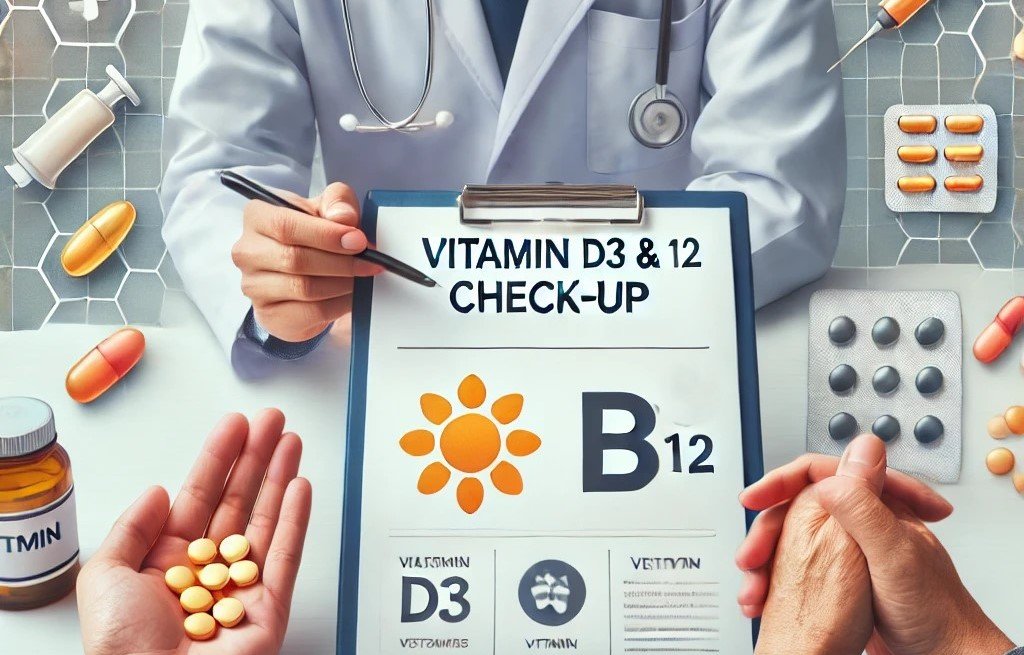In today’s fast-paced world, many people tend to overlook their health until they experience noticeable symptoms. However, waiting for symptoms to appear before seeking medical attention can often lead to late detection of serious health conditions. Regular health checkups are crucial in maintaining good health, preventing diseases, and ensuring early diagnosis of potential health risks. At My MD Dr, we believe in proactive healthcare that allows you to take charge of your well-being before problems arise. Why Regular Health Checkups Matter Routine health checkups serve as a preventive measure to detect health issues early. Many illnesses, such as high blood pressure, diabetes, and heart disease, develop silently without obvious symptoms. Regular screenings and doctor consultations can help in identifying these conditions early, allowing for timely intervention and treatment. 1. Early Detection Saves Lives Serious health conditions like cancer, diabetes, and heart disease often show no symptoms in their early stages. By the time symptoms appear, the disease may have progressed significantly, making treatment more complicated. Regular checkups help in early diagnosis, increasing the chances of successful treatment and recovery. 2. Prevention is Better Than Cure Preventive healthcare is always better than dealing with a full-blown illness. Through routine checkups, doctors can assess your risk factors, recommend lifestyle changes, and suggest necessary screenings or vaccinations. Prevention saves lives and reduces the financial burden of expensive medical treatments. 3. Monitor Existing Health Conditions If you already have a chronic illness like diabetes, hypertension, or asthma, regular checkups are essential for monitoring your condition. Medication, lifestyle, or diet adjustments may be required from time to time, and your doctor can help keep your health on track. 4. Peace of Mind Knowing that your health is in check provides mental peace. Regular screenings eliminate the anxiety of undiagnosed conditions and help you stay on top of your health. Instead of worrying about potential illnesses, you can focus on living a healthier and happier life. What to Expect in a Routine Health Checkup A general health checkup varies based on age, gender, and medical history. However, some common assessments include: Physical Examination – A complete body check to assess overall health. Blood Pressure & Cholesterol Test – Helps detect hypertension and heart disease risk. Blood Sugar Test – Essential for detecting and managing diabetes. ECG & Heart Health Screening – Identifies any potential heart problems. Lung Function Tests – Especially important for smokers and individuals with respiratory issues. Kidney & Liver Function Tests – Ensures proper organ health. Cancer Screenings – Recommended based on age and risk factors (e.g., mammograms, pap smears, prostate tests). At My MD Dr, we provide Doctor Home Visit services, ensuring you get quality medical consultations from the comfort of your home. Our experienced doctors perform health screenings, diagnose issues, and provide expert medical guidance without the hassle of clinic visits. Who Should Get Regular Health Checkups? While health checkups are beneficial for everyone, certain groups need them more frequently: Adults above 30 – Regular screenings for lifestyle-related diseases. Elderly individuals – Frequent monitoring of chronic conditions. People with a family history of diseases – Especially for diabetes, heart conditions, and cancer. Individuals with stressful jobs – Higher risk of hypertension and heart diseases. Smokers & alcohol consumers – Increased risk of respiratory and liver conditions. Take Control of Your Health Today! Don’t wait for symptoms to remind you about your health. Prioritise preventive care and schedule regular checkups with My MD Dr Our expert doctors provide Doctor Home Visits, Teleconsultations, and In-Clinic Services, making quality healthcare accessible and convenient. Book your checkup today and invest in a healthier tomorrow! Frequently Asked Questions (FAQs) What are the benefits of booking a doctor home visit instead of going to a clinic? Booking a doctor home visit eliminates the hassle of travel and waiting in clinics. It is especially beneficial for seniors, individuals with mobility issues, or those needing urgent care at home. My MD Dr provides experienced general practitioners for home consultations in Pune, including Koregaon Park, Kalyani Nagar, and Viman Nagar. Can I book a doctor home visit in an emergency? Yes, My MD Dr offers emergency doctor visits in Koregaon Park and nearby areas. If you need urgent medical care at home, our doctors are available for immediate consultation to provide the right treatment. Do you provide lab tests and diagnostics along with home visits? Yes, we offer lab tests and diagnostic services as part of our home healthcare solutions. Our partnered labs ensure accurate and timely test results, making it convenient for patients to get tested without visiting a clinic. How can I book a home visit doctor in Pune? Booking a home visit doctor in Pune with My MD Dr is simple. You can schedule an appointment through our website, call our support team, or use our online booking platform. Our experienced general practitioners provide expert medical consultation at home, ensuring personalized care. Do you provide specialized care for seniors and children? Yes, we offer senior citizen medical care at home in Pune for elderly patients requiring routine checkups, chronic disease management, or post-hospitalization care. What conditions do your home visit doctors treat? Our doctors in Kalyani Nagar and nearby areas treat fever, flu, infections, chronic illnesses (diabetes, hypertension), respiratory issues, minor injuries, and more. If required, they also recommend specialized tests and further diagnostics. Are your services affordable compared to clinic visits? Yes, our home doctor services are priced competitively. We aim to make affordable home consultation doctors in Pune accessible to everyone, offering high-quality medical care at reasonable rates. Do you offer 24/7 doctor home visits in Pune? We provide home visit doctor services for urgent medical needs, though availability may vary based on location and doctor schedules. If you need a 24/7 doctor home visit near Koregaon Park, please contact us, and we will do our best to assist you.










